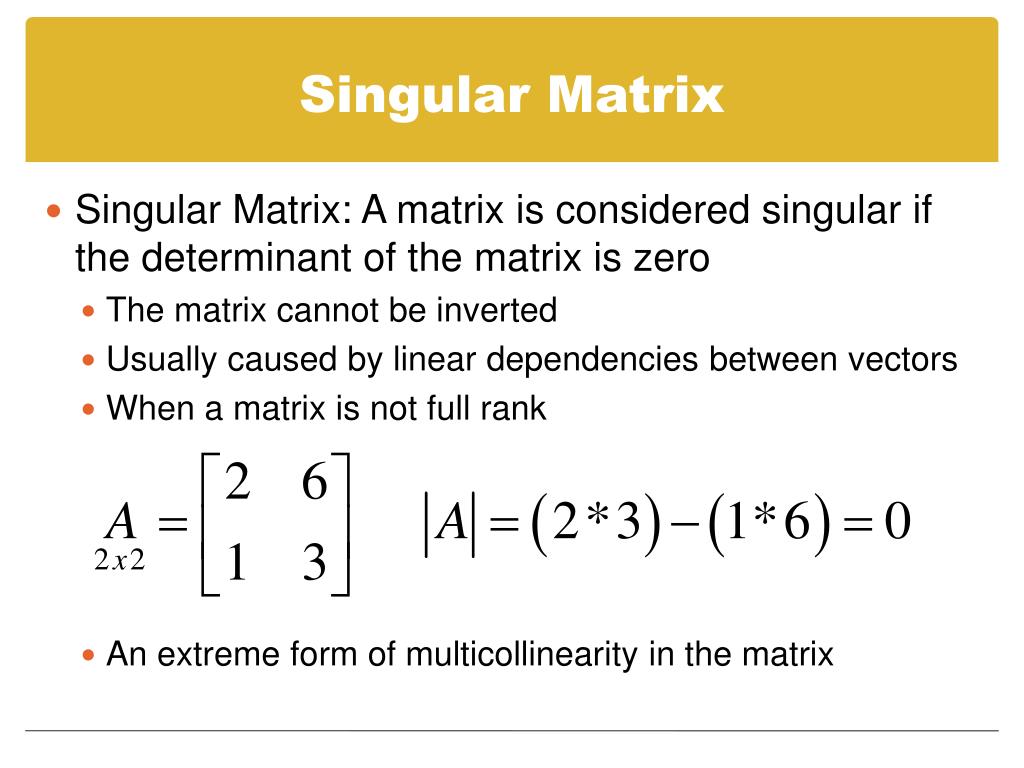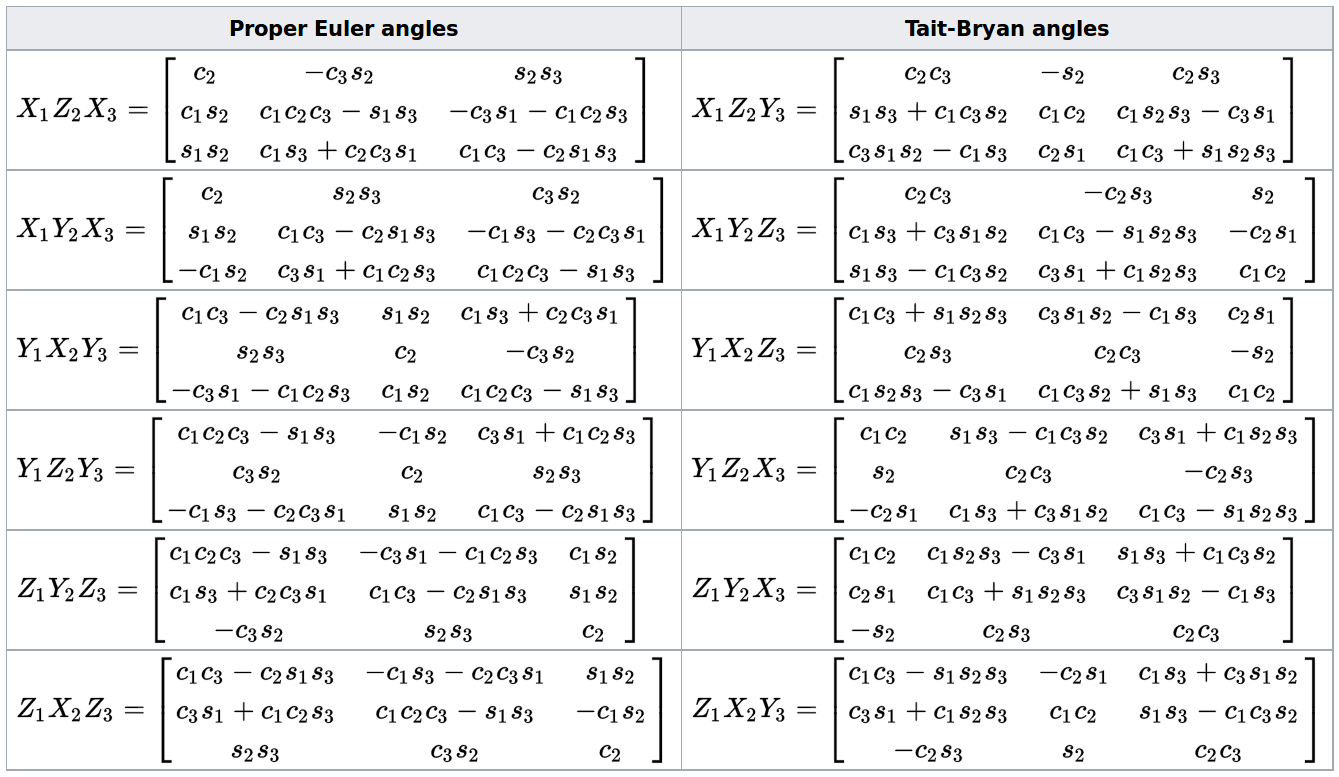


The other three options certainly apply to the singular matrix.This article may be too technical for most readers to understand.

This is because it is a non-singular matrix which is invertible. It refers to a matrix whose determinant is zeroĪ1 The correct answer is option B., which is “this matrix is invertible”. It cannot be multiplied with other matrices to achieve the identity matrixĬ. Q1 Which of the following statements is not true with regards to the singular matrix?Ī. Hence, the study of singular matrix carries huge importance. Most noteworthy, their behaviour is quite similar to singular matrices. Furthermore, matrices whose determinants are close to zero certainly take place in real life. In real life, the singular matrices would happen with vanishing probability. Singular matrices have determinants which are neither positive nor negative. On the other hand, multiplication by matrices with a negative determinant leads to the reversal of orientation.ĭeterminant sign relative to the trace certainly plays a significant role in the qualitative behaviour of non-linear ordinary differential solutions. The sign of the determinant has implications in many fields.Īn example can be multiplication by matrices with a positive determinant leads to the preservation of the orientation. Singular matrices act as a boundary between matrices whose determinants are positive, and those matrices whose determinants are negative. Moreover, the matrix must have linearly independent columns. Furthermore, the rank of the matrix must equal n.
#Singular matrix verification#
This verification is important to prove whether the matrix is singular or non-singular.įor an n by n square matrix, the matrix must certainly have a non-zero determinant. Most noteworthy, if an individual is able to find an inverse for a matrix, then it is certainly non-singular.Īn individual must verify that the matrix meets all the conditions for the invertible matrix theorem. Moreover, an identity matrix refers to a square matrix which consists of the same dimensions as the original matrix with the ones on the diagonals and zeroes elsewhere. In case the matrix has an inverse, then the matrix multiplied by its inverse will give you the identity matrix. A matrix with a non-zero determinant certainly means a non-singular matrix. The first step in plenty of linear algebra problems is the determination of whether a matrix is singular or non-singular.Ī matrix can be singular, only if it has a determinant of zero. This is because non-singular matrices are invertible. Furthermore, the non-singular matrices can be used in various calculations in linear algebra. Non-singular matrices, on the other hand, are invertible. Such matrices cannot be multiplied with other matrices to achieve the identity matrix.
#Singular matrix how to#
How to Determine If A Matrix is Singular or Non Singular If, = 0 (singular rmatrix), then the matrix x will not exist according to equation (1).

Where adj(x) is adjoint of x and is the determinant of x. What this means is that its inverse does not exist.Īs, an inverse of matrix x = adj(x)/, (1) Therefore, matrix x is definitely a singular matrix.Ī singular matrix is non-convertible in nature. Then by the rules and property of determinants, one can say that the determinant, in this case, is zero. Singular matrices are rare in the sense that if a square matrixs entries are randomly. For example, if we take a matrix x, whose elements of the first column are zero. A square matrix is singular if and only if its determinant is zero. The matrices are known to be singular if their determinant is equal to the zero. Students can learn more about the singular matrix here. Furthermore, such a matrix has no inverse. A singular matrix refers to a matrix whose determinant is zero.


 0 kommentar(er)
0 kommentar(er)
